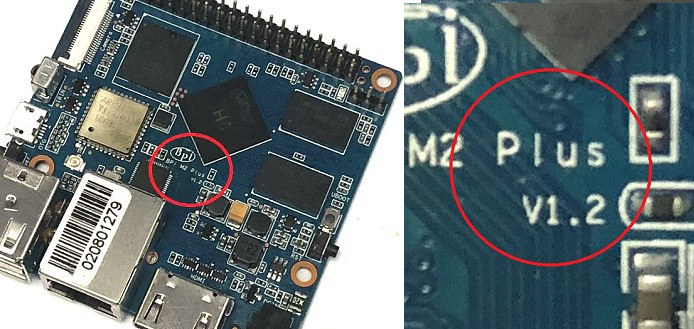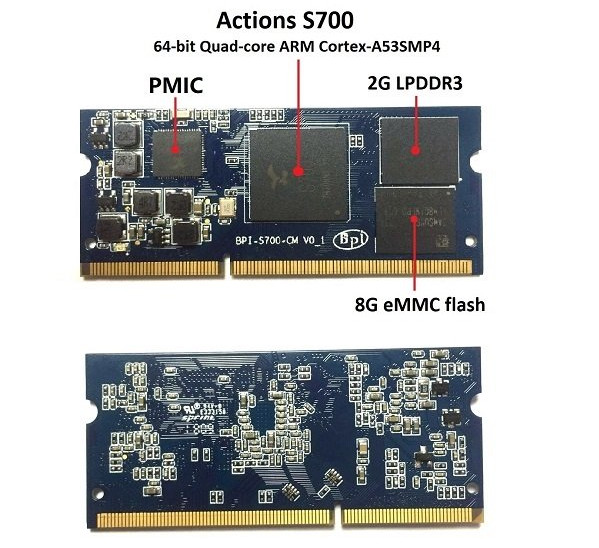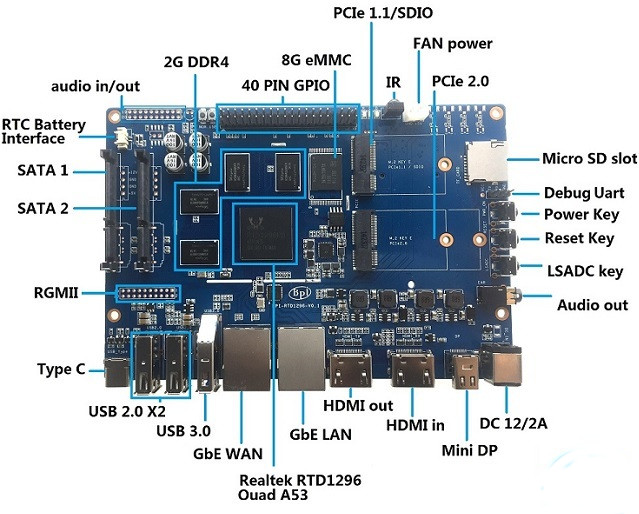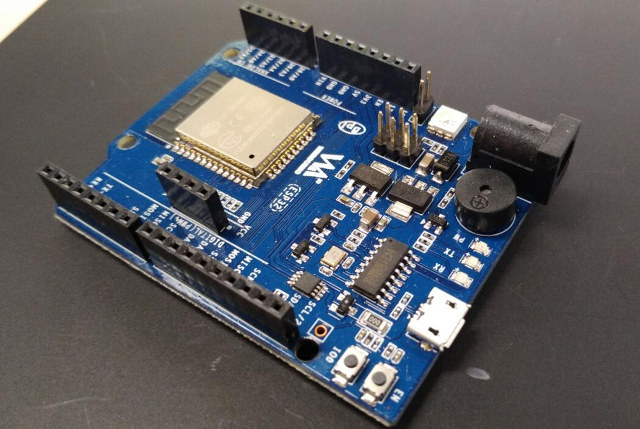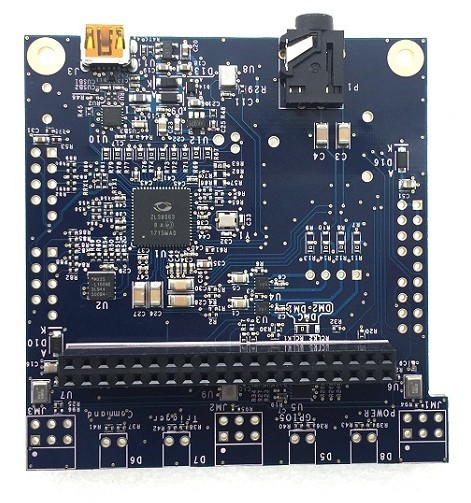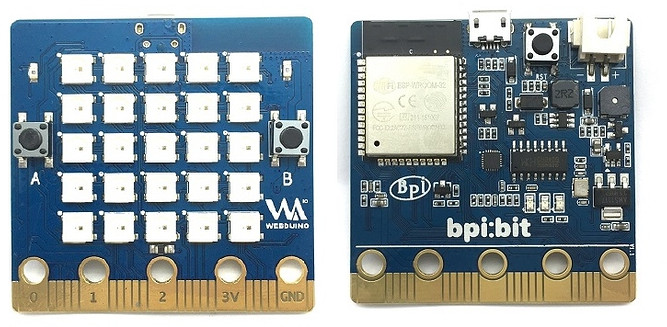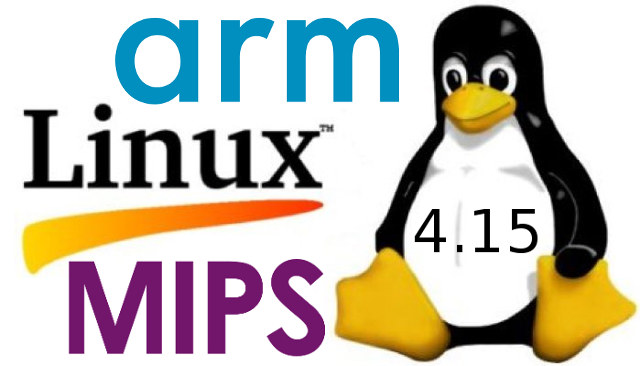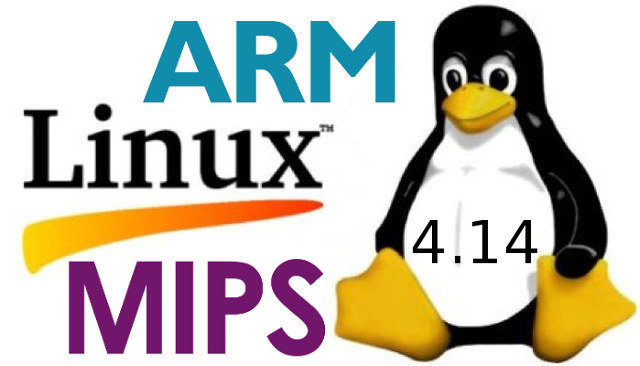When people decided which development board to purchase for their project / use case(s), the often look at the processor, memory, storage, and the external ports, as well as I/Os. However, very few people look at the PMIC (Power Management IC) on the board, as it’s normally an afterthought. Development boards can work without PMIC, instead relying on a single fixed voltage, and for many people that may be good enough, but for more demanding tasks it may lead to either lower performance or overheating issues. Modern processor all rely on DVFS ( Dynamic Voltage and Frequency Scaling) in order to adjust both the voltage and frequency of the processor depending on the load. This is done to optimize power consumption and/or manage the power budget, and overheating may lead to CPU throttling, where the system lowers the frequency and/or operating voltage in order to avoid damaging the processor. I’m […]
Banana Pi BPI-S64 Core is a “Compute Module” based on Actions Semi S700 Processor
SinoVoIP has launched many development boards & SBCs under the Banana Pi brands, but so far they had not designed any system-on-modules (SoM). Banana Pi BPI-S64 Core is their first SoM, which they refer to as “Compute Module” for the compulsory Raspberry Pi reference, and it’s not based on Allwinner or Realtek processors used in many of their recent boards, but instead an Actions Semi S700 quad core Cortex A53 processor. Banana Pi BPI-S64 Core specifications: SoC – Actions Semi S700 quad core Arm Cortex-A53 processor with Arm Mali-450MP4 GPU with OpenGL ES2.0/1.1, OpenVG 1.1, EGL 1.5 support System Memory – 2GB LPDDR3 Storage – 8GB eMMC flash Edge Connector – 204-pin SO-DIMM connector Power Supply – PMIC on-board Dimensions – 67.5 x 30 mm The company also provides Banana pi BPI-S64 core kit for getting started with the module. Development kit preliminary specifications: SODIMM slot for Banana BPI-S64 Core […]
Banana Pi BPI-W2 Multimedia Router / NAS Board Launched for $93
SinoVoIP has really been busy for products launches this month, as Banana Pi BPI-W2 is the fourth board they’ve started selling on Aliexpress. The board is designed for media, storage, and networking application, thanks to its Realtek RTD1296 quad core processor combined with 2GB RAM, dual Gigabit Ethernet, dual SATA interfaces, M.2 slots, USB 3.0/2.0 ports, HDMI 2.0a output and input, and more. Banana Pi BPI-W2 specifications have not changed since the early announcement last fall: SoC – Realtek RTD1296 quad core Cortex A53 processor with ARM Mali-T820 MP3 GPU System Memory – 2GB DDR4 RAM Storage – 8GB eMMC flash (optional 16, 32 or 64GB), 2x SATA 3.0 interfaces, micro SD slot up to 256GB Video Output – HDMI 2.0a up to 4K @ 60 Hz, mini DP Input – HDMI 2.0 input up to 1080p60 Playback – HDR, 10-bit HEVC/H.265 up to 4K @ 60fps, H.264 up to […]
Banana Pi BPI-ESP32 Board Follows Arduino UNO Form Factor, Works with Webduino and Arduino IDE
SinoVoIP has been pretty busy those days, as beside launching a BBC Micro:bit clone based on ESP32, and BPI-AI-Voice speech recognition board (also a clone or MicroSemi AcuEdge kit), the company has now started to take orders for Banana Pi BPI-ESP32 board for $10.99 plus shipping on Aliexpress. As the name implies, the based is based on ESP32 WiSoC, supports Arduino shields since it follows Arduino UNO form factor, and can be programming with web based Webduino visual programming IDE, or the Arduino IDE. BPI-ESP32 (aka BPI-UNO32) board specifications: Wireless module – ESP-WROOM-32 WiFi 802.11b/g/n, and Bluetooth 4.2 LE module; 4MB flash Expansion – Arduino headers with GPIOs, ADC, Ethernet, VP/VB, UART, I2C, Touch interface, etc… (See pinout table below) Misc – Buzzer, Tx/Rx LEDs, power LED, RGB LED, buttons Power Supply 5V/1A via micro USB 12V via 5.5mm DC jack Dimensions – 68 x 53 mm The company has […]
Banana Pi BPI-AI-Voice is a $169 Speech Recognition Development Kit based on MicroSemi ZL38063
SinoVoIP has just launched BPI-AI-Voice development platform for speech recognition on Aliexpress for $169, and excluding the different PCB color, it is a clone of the official $299 Microsemi AcuEdge Development Kit for Amazon AVS, which is based on MicroSemi ZL38063 audio processor and comes with two microphones. BPI-AI-Voice key features: Audio Processor – MicroSemi ZL38063 Storage – U2 SPI flash to store ZL38063 firmware Audio 4x on-board digital microphones (AKU441) supporting a 2 microphone configuration for 180° and 360° audio pick-up. 2x low cost class D audio amplifier (NCP2820) Expansion Headers JMMA1 audio header for digital microphone, analog out, and 3 GPIOs JM1-4 digital microphone headers for off-board microphones 40-pin P2 header to connected to Raspberry Pi 3 (I2S, SPI and 8x GPIO used) Debugging – JAIB2/2 auto tuning headers, micro USB port. Power Supply – 5V via micro USB port Dimensions – 70 mm × 66 mm Temperature […]
$19.50 BPI:bit ESP32 Board is Inspired by BBC Micro:bit, Compatible with Webduino and Arduino IDE
BBC micro:bit board for education was first unveiled in 2015, before starting to be given away to UK students, and later sold for about $19 in 2016. The board supports Bluetooth connectivity, includes an array of 25 LEDs, as well as a specific 20-pin edge connector also featuring 5 large holes (rings) for 3 I/Os and power. So far I had not seen any clones or alternative boards inspired from the design, as we see for Arduino or Raspberry Pi boards. But SinoVoIP (Banana Pi) has changed that with their BPI:bit clearly inspired from the Micro:bit, but offering both WiFi and Bluetooth connectivity via an ESP32 module. Hardware specifications: Wireless module – ESP-WROOM-32 module with WiFi and Bluetooth LE connectivity LEDs – 25x RGB LED array Sensors – 2x light sensors, thermistor, 9-axis accelerometer / gyroscope / compass (MPU-9250) Expansion – 3 digital/analog I/O rings, 3V/GND ring, 20-pin edge connector […]
Linux 4.15 Release – Main Changes, Arm and MIPS Architectures
Linus Torvald has released Linux 4.15 last Sunday: After a release cycle that was unusual in so many (bad) ways, this last week was really pleasant. Quiet and small, and no last-minute panics, just small fixes for various issues. I never got a feeling that I’d need to extend things by yet another week, and 4.15 looks fine to me. Half the changes in the last week were misc driver stuff (gpu, input, networking) with the other half being a mix of networking, core kernel and arch updates (mainly x86). But all of it is tiny. So at least we had one good week. This obviously was not a pleasant release cycle, with the whole meltdown/spectre thing coming in in the middle of the cycle and not really gelling with our normal release cycle. The extra two weeks were obviously mainly due to that whole timing issue. Also, it is […]
Linux 4.14 Release – Main Changes, ARM & MIPS Architecture
Linus Torvalds has announced the release of Linux 4.14: No surprises this week, although it is probably worth pointing out how the 0day robot has been getting even better (it was very useful before, but Fengguang has been working on making it even better, and reporting the problems it has found). Sure, some of the new reports turned out to be just 0day doing things that just don’t work (ie KASAN with old gcc versions, but also doing things like loading old ISA drivers in situations that just don’t make sense – remember when you couldn’t even ask if the hardware existed or not, and just had to know), but even then it’s been all good. The appended shortlog is obviously only for the (small) haul since rc8, and it really is tiny. Not very many commits, and they are small. The biggest thing that stands out in the diffstat […]


